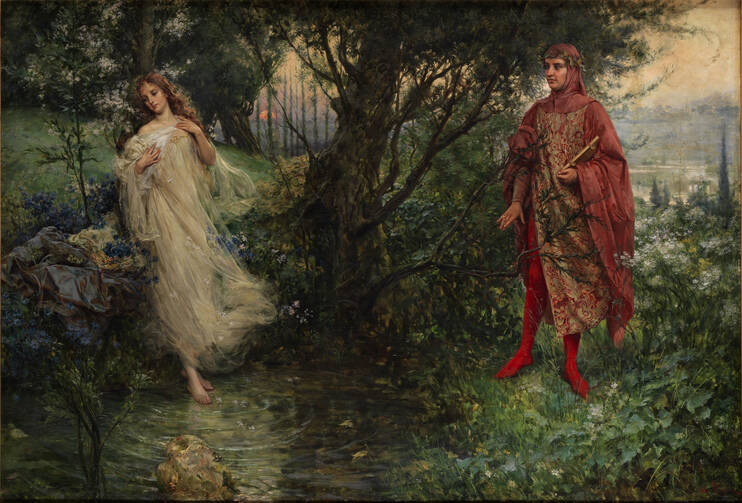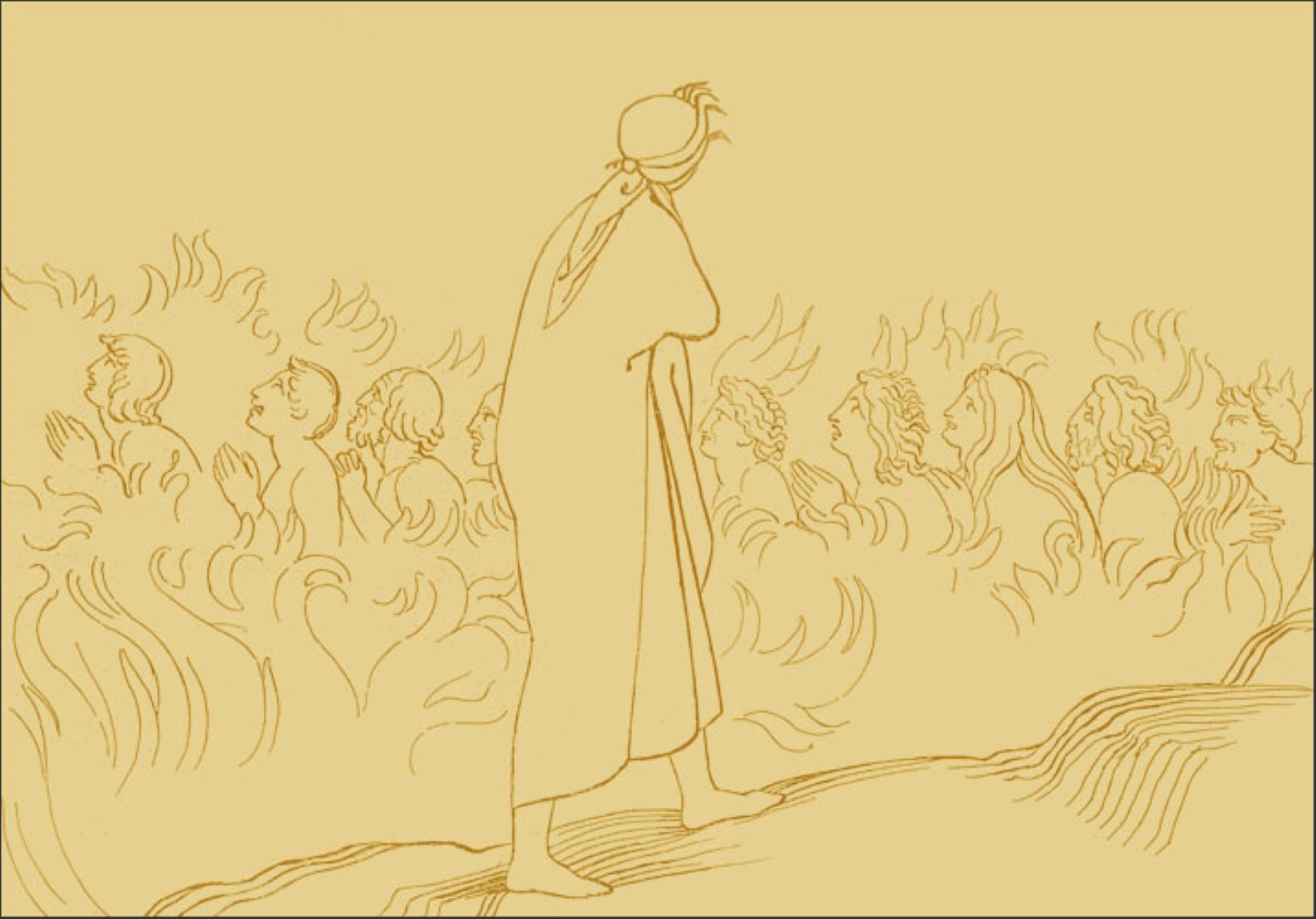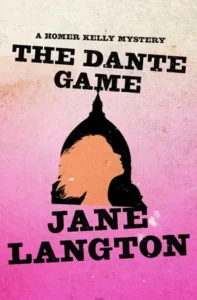“Canto 24 is taken up with the climb of the three poets from the terrace of greed to the terrace of lust, and an extended conversation they have along the way in which Statius explains for Dante’s benefit the relationship between the physical body and the soul (according to a mix of theology and Aristotelian biology) and how this accounts for the fact that the bodies of the souls in purgatory cannot die yet can suffer the visible deprivations of hunger. This is a sort of Aristotelian SciFi element to the Divine Comedy which, though doubtless fascinating to its medieval readers, often give the work a reputation for being hard to understand among 20th century readers. —Darwin, “Lenten Meditations on Purgatorio: Lust,” Darwin Catholic, April 2, 2009 (retrieved March 20, 2024)
“‘Love that Moves the Sun’: Catholicism’s Deeper Ecology – A Response to Clive Hamilton”
Mary Taylor, in her blog, utilizes Dante’s words from Paradiso 33 to counter the claims of a conditional love on behalf of God by Clive Hamilton:
“For many, religion is little more than a cluster of stories that are only acceptable if they function as utilitarian aids to the ultimate end, the Summum Bonum of ‘saving the earth.’ This movement is part of a larger picture which eventually culminates in what David C. Schindler called the “tendency to reduce thinking to politics,” and an impoverished conception of reason that ultimately forces us to see every question in terms of an eternal struggle between ‘liberals’ and ‘conservatives’ (political terms left over from the French Revolution that should have no place in discussions of Catholic faith and teaching).
“But reductionism is double-edged: like holding up a stencil or template to the world, great swatches of our vision are blocked out entirely, and whatever else remains to be seen is forced into a certain shape. ‘The alternative to seeing what is there,’ says Frank Sheed, ‘is either not seeing what is there, and this is darkness; or seeing what is not there, and this is error, derangement, a kind of double darkness.'” —Mary Taylor, “‘Love that Moves the Sun’: Catholicism’s Deeper Ecology – A Response to Clive Hamilton,” ABC, March 16, 2021 (retrieved March 6, 2024)
“Easter Is an Invitation to Fall in Love”

“To borrow a phrase from Paul McCartney, is the Paradiso only ‘another silly love song’? Is Dante no more than a 14th-century romantic, employing a trope someone such as Irving Berlin would make even more famous in the 20th century, that being in love is like being in heaven?
“Or has this deeply Catholic poet identified a key element in the meaning of Easter, that love alone grants access to heaven, just as only those who loved Christ could see his resurrected glory?” — Terrance Klein, “Easter Is an Invitation to Fall in Love”, America Magazine, April 5, 2023
The Dante Game
“When the Pope issues a sweeping edict calling for a yearlong war on drugs, no one is more surprised than the Vatican to find the campaign a success. In every Catholic corner of the world, young people throw down their needles to pick up crosses. In Florence, thousands of them converge on the Duomo to thank Christ for their newfound commitment to sobriety. Nearly everyone is relieved by this development—save for Leonardo Bindo, banker and druglord. To get his business back on track, he seizes upon a simple plan: Kill the Pope. Standing in his way is Homer Kelly, transcendentalist scholar and occasional detective. In Florence to teach at a new international university, Homer stumbles on Bindo’s scheme while investigating the disappearance of a beautiful young student. His Italian may be lousy, but Homer is the only man who can save Italy from itself.” —Jane Langton, The Dante Game, Amazon (1991)
Pascale Marthine Tayou, Sisiphe remontant le tarmac (2013)

“Miserere—In vulgar Latin, it is the first word of Psalm 50: ‘Miserere mei, Deus, secundum magnam misericordiam tuam,’ used in the Catholic liturgy in funeral services, in the rites of Lent and the Holy Week, and generally in the orations of penitence. The penitential psalm is sung in the Comedy by the rows of the dead, in the second terrace of Ante-Purgatory, and the chant, is recited in alternate verses (‘singing the “Miserere” verse by verse’ [Purgatorio, Canto V, 24]), is interrupted by an exclamation of astonishment when the souls realize from his shadow that Dante is alive. In a rather different context, however, the expression ‘Miserere mei’ is cried out by Dante at the appearance of Virgil’s shadow in the forest (Inferno, Canto I, 65).”
Retrieved from The Divine Comedy: Heaven, Purgatory, and Hell Revisited by Contemporary African Artists by Simon Njami.
For more on the Cameroonian artist Pascale Marthine Tayou, see Wikipedia.



